Last week, EBOSS submitted a response to the Overseas Product Amendment Bill, which seeks to increase the availability of building products by recognising specific overseas product certifications. Our response focused on the feedback from our July research survey of 588 architects (architects, graduates and designers) and 309 builders.
The findings showed strong support for widening the availability of products. However, it strongly points out that not all products should be treated equally when establishing the process and specific factors when considering overseas standards as a means of compliance to the building code.
Roughly a third of architects think the changes will be detrimental to enclosure and structural products, with thermal and interior building products having a much more positive impact.*
*EBOSS Architect Sentiment Report 2024
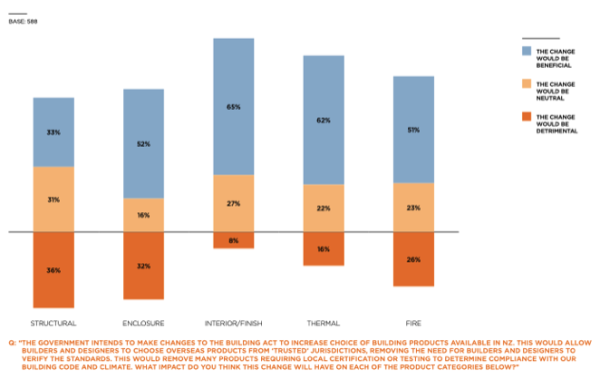
Builders seemed more hesitant than architects**. They raise concerns about the risks associated with products not suited to New Zealand’s weather conditions. There are fears of potential issues such as leaky buildings, increased liability, and the possibility of substandard construction.
**EBOSS Builder Sentiment Report 2024
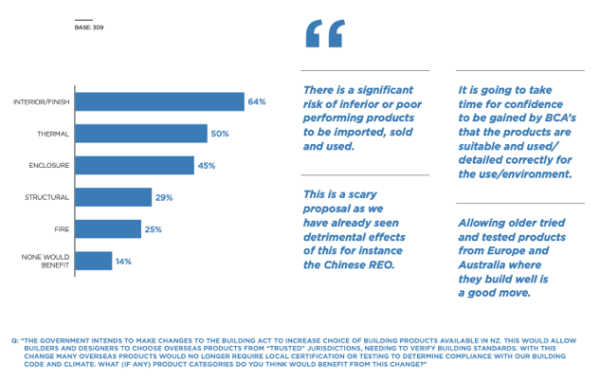
So let's remind ourselves of the outcome the government is looking to achieve. Let's look at two desired outcomes of the proposed legislation references:
- Increasing choice of building materials (and competition)
- Decreasing the cost of demonstrating compliance in NZ
Currently, 70% of building products used in NZ are imported as finished products. If we include locally made products dependent on key imported components, this increases to 90%***, so imports are currently a big part of our industry.
***EBOSS Construction Supply Chain Report 2021
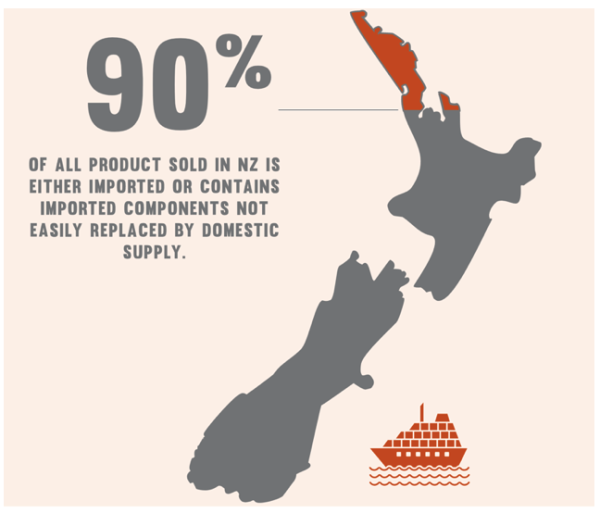
How realistic are these outcomes, and what change will occur considering the existing prevalence of imports in NZ?
The key challenge will be designing systems for both the recognition of overseas standards and product certification schemes where, for many products, the expectations of performance are universal, but there are some unique situations in NZ that may mean some products are not appropriate. However, we need to keep this in perspective — some other countries have high UV and earthquakes. The same applies within NZ — some products cannot be used in the volcanic areas or in coastal areas.
Currently, any building product with moderate/high-performance requirements (think cladding, structural elements or passive fire products) relies on local testing and certification (currently there are ~900 appraisals (e.g. BRANZ and CodeMark)) to reassure the designer, builder and councils.
So how will the market react to the proposed expansion relying on overseas certification from trusted jurisdictions?
And who provides the evidence that the international testing performed on a new product (e.g., a new brand of European cladding) will meet minimum standards of weather tightness and durability here?
If the market is confident that councils can rely on overseas certification, then the expense of NZ testing and certification may be avoided, which is a genuine saving that we expect the supplier to pass on to the builder and homeowner.
The government has a big job with this legislation to set clear expectations on which certifications are to be “trusted”, what products could be accepted under these international certifications, and what risk designers, builders and councils are taking by relying on these certifications as compliance pathways.
While it is clear that this Government moves fast on many issues, it is unclear how long it will be before we see practical implementation of these proposals.
The Select Committee currently considering the Bill is due to report back on the 26th March 2025 and then the Bill will resume its pathway through Parliament (with possible changes arising from the submissions received). Passage of the Bill is probably mid 2025 and then regulations will need to be made which designs the actual process. While MBIE are developing these in parallel, they cannot be made until the Bill is passed. Then the work begins of MBIE analysing and making recommendations on which Standards and Certification Schemes are to be recognised. It is expected that these will be progressive decisions made with the easiest ones first. With an election due in late 2026 it is certain that there will be at least some Standards and Schemes recognised; these are possibly going to be small in number but will grow over time.
We look forward to seeing the government's response to the submissions and future details of the legislation, well before it goes to the second reading in Parliament.











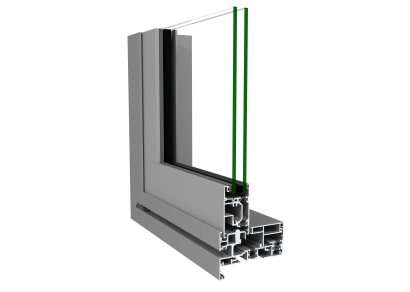

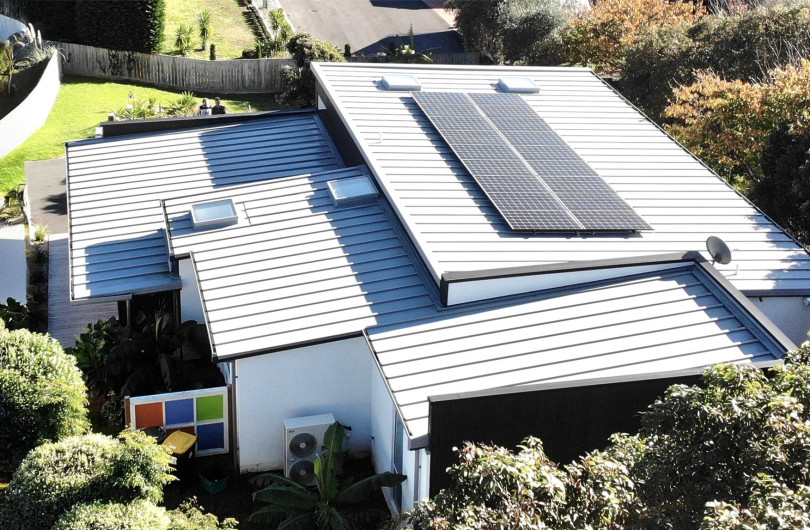
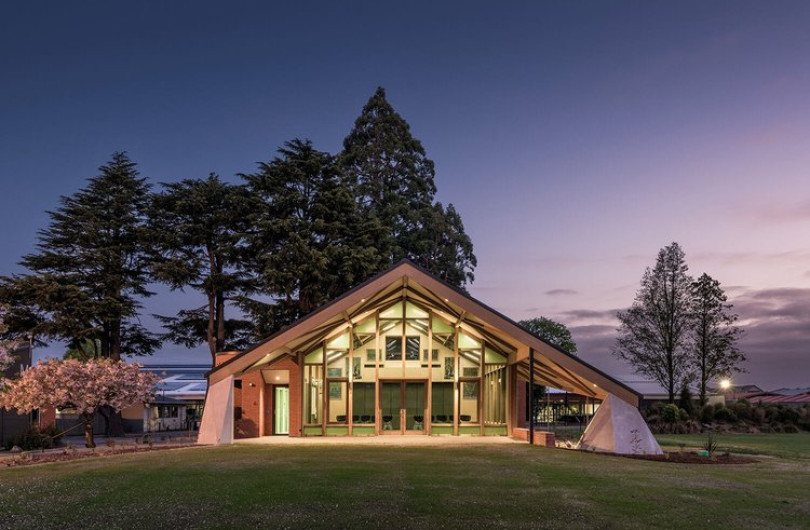



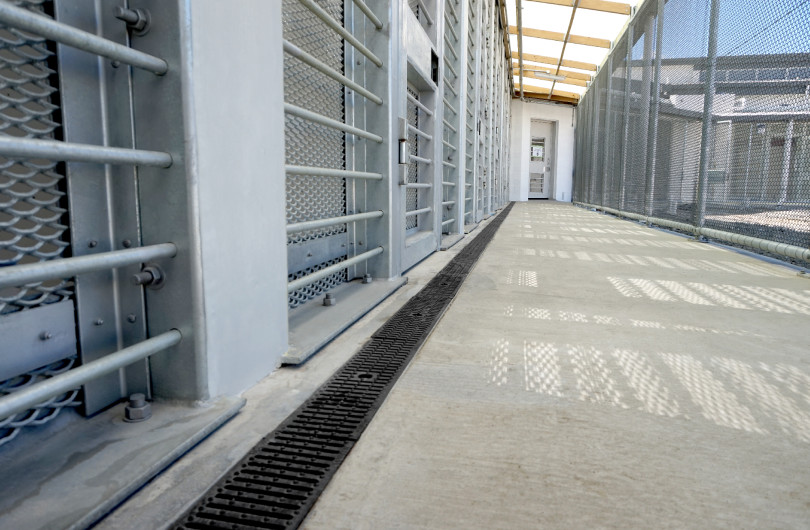






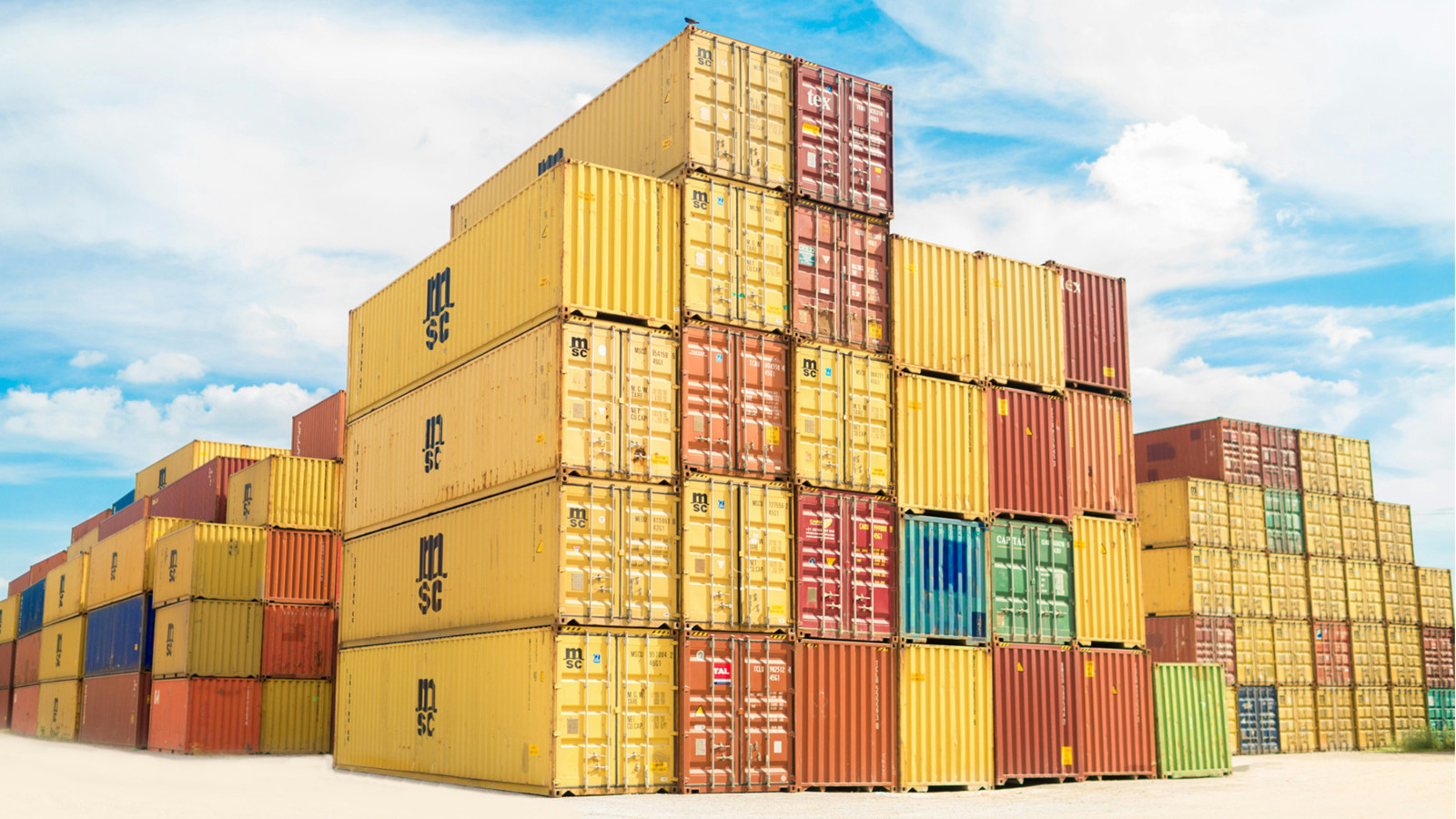



 Most Popular
Most Popular Popular Products
Popular Products


